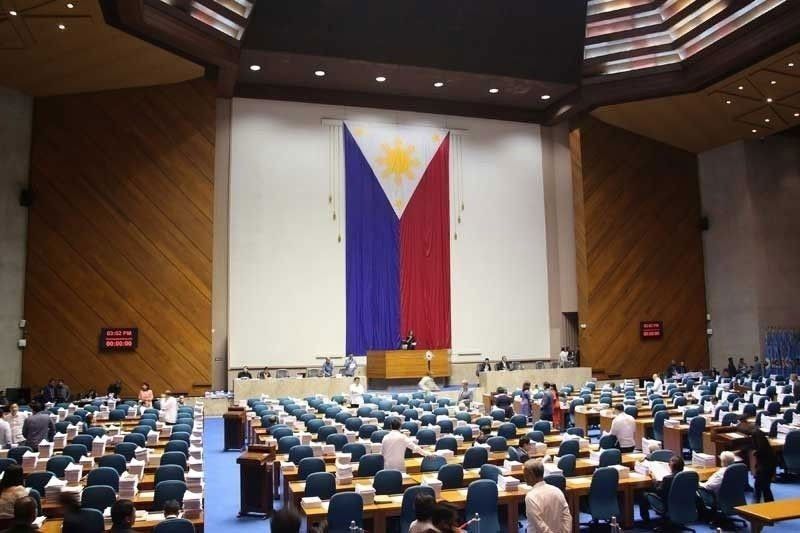House: Business groups back economic Cha-cha

MANILA, Philippines — Business groups, including the most influential in post-Marcos era administrations, have expressed support for the lifting of prohibitive economic provisions in the 34-year-old Constitution enacted during the time of the late president Corazon Aquino, according to a congressman.
Some of the economic provisions lawmakers want to discuss in Charter change are foreign ownership and investment opportunties, especially on the telecommunications industry.
Rep. Alfredo Garbin Jr., chairman of the House committee on constitutional amendments, over the weekend sent House reporters a “consolidated comparative matrix” where organizations gave their stamp of approval in 2013.
The groups include the Makati Business Club, Management Association of the Philippines, Employers Confederation of the Philippines, Philippine Mining and Exploration Association, and Foundation for Economic Freedom, as well as businessman Peter Wallace.
The American Chamber of Commerce Philippines Inc. (AmCham), represented by its senior adviser John Forbes, and the Joint Foreign Chambers of the Philippines (JFC), have also signified their support since the 16th Congress (2013-2016).
Speaker Lord Allan Velasco, author of Resolution of Both Houses (RBH) 2, has “instructed” Garbin of party-list Ako Bicol to “open the discussions on amending the restrictive provisions” of the charter when Congress resumes session on Jan. 18.
“As global economies slowly start to reopen, we cannot allow the Philippines to lag behind in terms of investments and opportunities. We need to seize the momentum if we are to fully recover from the economic devastation of Covid-19,” the Marinduque congressman said.
Garbin made assurances that his committee will “treat the proposed measure to amend these stifling economic provisions just like any other bill that is taken up in the plenary: with fairness and transparency.”
“If we want to better position the Philippines, Charter change must happen now because our economy is still a long way from full recovery,” he said. “It will go through the legislative process and will be voted upon nominally by each member of the House.”
Albay Rep. Joey Salceda, chairman of the House ways and means committee, along with Deputy Speakers Bernadette Herrera (Bagong Henerasyon) and Lito Atienza (Buhay) also supported the Speaker’s call to open the Charter change move for discussion.
“The restrictions have long held us back from pursuing the same kind of aggressive national development that our neighbors, such as Vietnam, Thailand and Malaysia, have pursued,” Salceda said.
“At this rate, with our self-imposed restrictions, Myanmar and Cambodia will leapfrog us if we continue to tie our own hands,” the former director general of the National Economic and Development Authority warned.
Herrera, for her part, said this will help improve the country’s ability to lure a critical mass of foreign investors, especially in the telecommunications industry.
“Allowing some flexibility to bring in foreign investments will be key for the economy to stage a recovery,” she said.
Atienza said the move will “quickly liberalize Philippine industries and pivot to new economy.”
“What the country needs now is visionary strategic leadership that looks ahead five to 10 years from now. Foreign ownership of many of our industries is still limited up to 40 percent only. We must now relax these limits,” the former Manila mayor said.
Strengthen party-list system
At the Senate, Sen. Panfilo Lacson said it would be better if Congress simply strengthens the 25-year-old Republic Act 7941 or the Party-List System Law to plug loopholes that allow communist rebels in government rather than tinker with the Constitution that could lead to sweeping and self-serving amendments.
Lacson said the issue of whether the Senate and the House of Representatives should be voting jointly or separately for any proposed amendment to the Constitution is something that must be clearly resolved first before a resolution seeking to convene Congress into a constituent assembly (con-ass).
“What’s worrisome is that if and when we convene the con-ass, things are vague, it’s not yet clear how the voting will be done… senators would just be useless there and simply watch what’s happening,” he told dzBB, referring to a scenario where the 300-member House would simply overwhelm the 24 senators in every vote in the event the Charter-amending body would be voting jointly.
“Why would we open up the Constitution when we don’t know what might happen next. When we cannot stop what they want to touch even if we’re there,” he said in Filipino.
He added that amending RA 7941 was more practical as it is the enabling law of the constitutional mandate for the country to have party-list representation in Congress.
Leni: Cha-cha ill-timed
Meanwhile, Vice President Leni Robredo yesterday urged lawmakers pushing for Cha-cha to focus on legislation that would help lessen the impact of the COVID-19 pandemic.
Robredo called fresh moves to amend the 1987 Constitution “dangerous and ill-timed.”
She cited the findings by “independent” agencies that showed the Philippines is likely to have the worst-performing economy in Asia due to the COVID-19 pandemic.
Instead of focusing on the COVID-19 response, she said lawmakers passed last year the Anti-Terrorism Act and denied the renewal of franchise of TV network ABS-CBN.
“During the pandemic, we passed the anti-terror law. ABS-CBN was closed. Now we are pushing for charter change. Have we not learned to focus our energies and attention on things that would not burden our people?” she said in Filipino. – Paolo Romero, Helen Flores
- Latest
- Trending



























